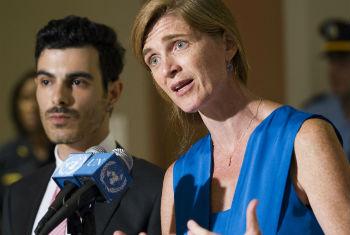LGBT in the Middle East under the spotlight at the UN
The situation of people in the Middle East who are lesbian, gay, bisexual and transgender (LGBT) was recently discussed for the first time by the UN Security Council during what is known as an Arria formula meeting.
This form of meeting is a relatively recent practice, which enables members of the 15-member council to exchange views more flexibly.










